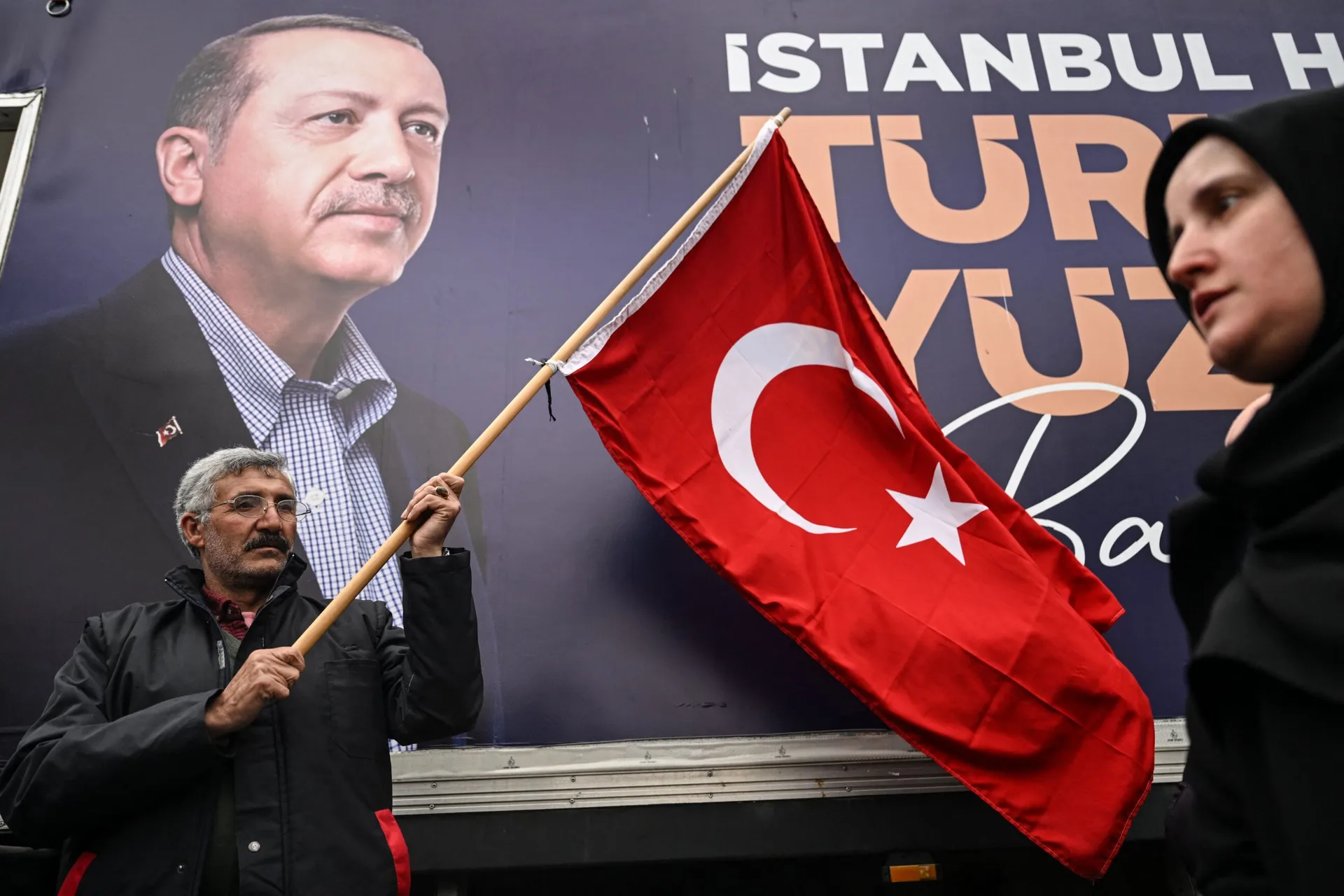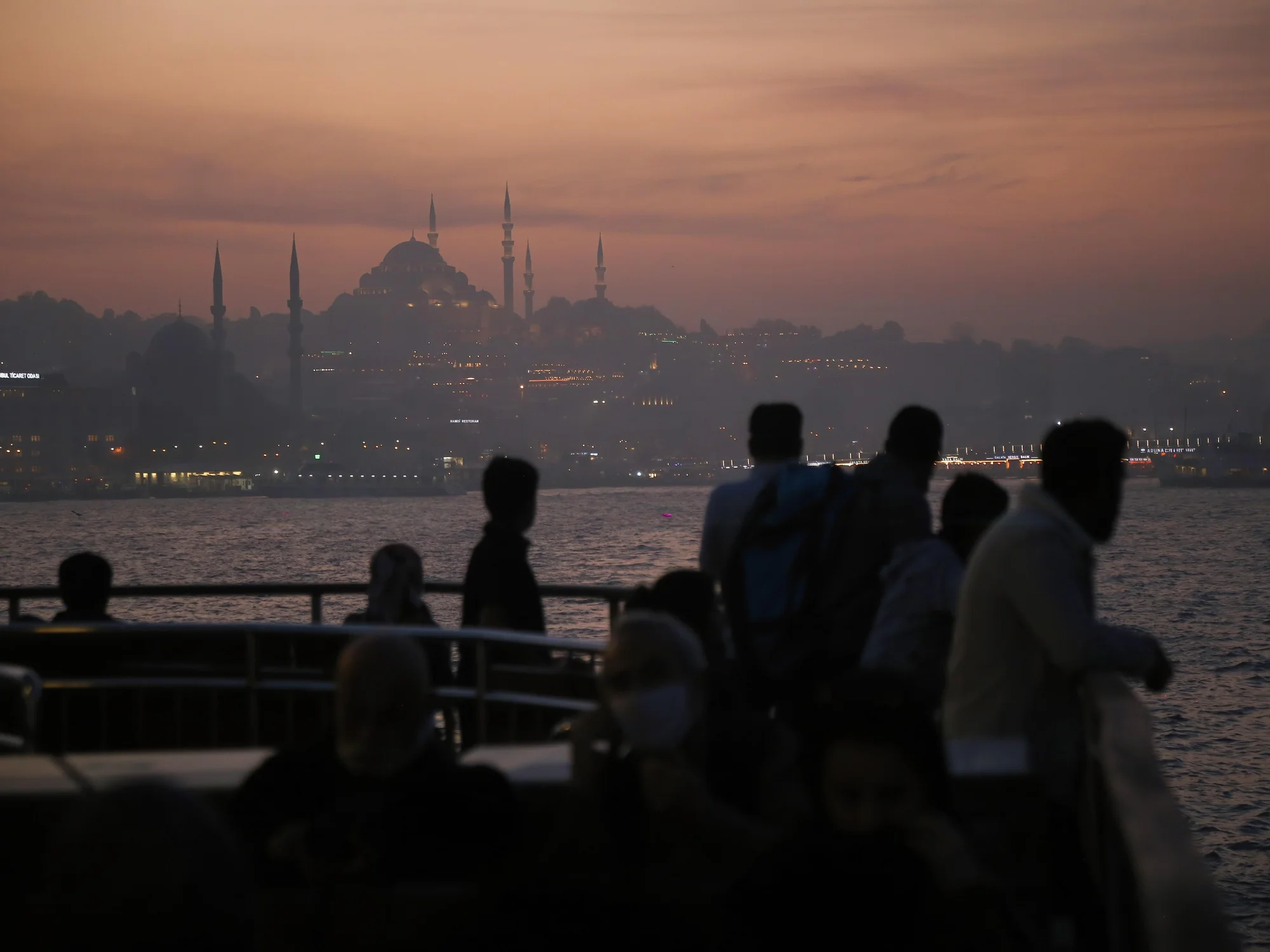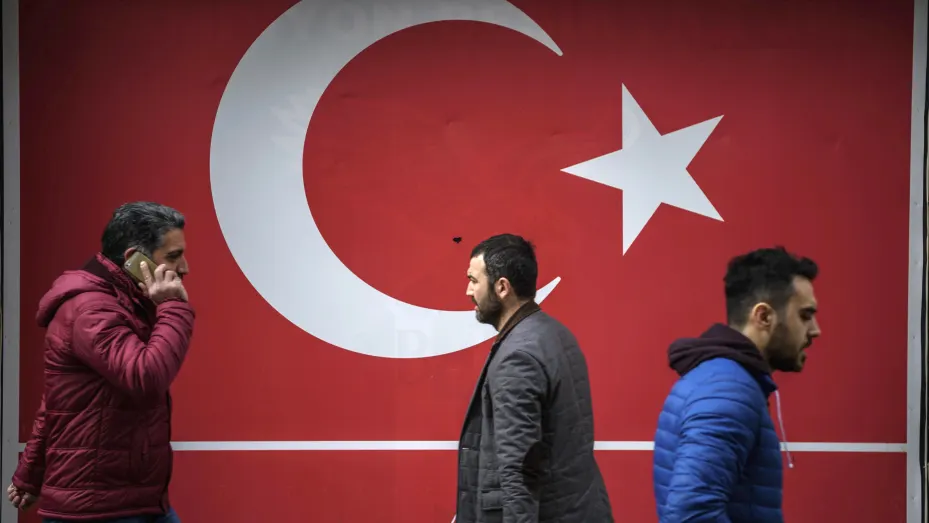By Erika Koutroumpa,
Presidents of Turkey serve up to 5 years and have the right to one re-election, which means this marks the third and final decade of the current president in office. After a neck-to-neck battle with the coalition of the opposition, Recep Tayyip Erdogan managed to be re-elected one last time, affecting not only the lives of the citizens living in the country, but also the 3.2 million Turkish nationals residing abroad.
The Justice and Development Party (AKP) is led by Erdogan and is a right-wing party, self-described as conservative-democratic, although it has been accused of promoting neo-Ottomanism and an authoritarian regime. On the other hand, their biggest competitors are the Republican People’s party, initially founded by Mustafa Kemal Ataturk which is center-left and pro-Europeanism. Based on the principles that these two parties represent, it is evident that AKP is mostly supported by devout Muslims, especially those in rural Anatolia, while CHP is traditionally supported by the Aegean Coast of the country, which includes Izmir and the cultural capital, Istanbul, two of the largest cities both population and capital-wise.
Once again, the CHP did not manage to win over AKP, however a definite increase in their popularity has been observed. This time around they came in second with 47.87% of the votes, a significant increase compared to 2019 when they received 30.64%. While addressing the public after his re-election, president Erdogan claimed, “We are not the only winners, the winner is Turkey”, but it seems that his rivals and many of the voters would beg to differ. When choosing who to vote, the public took into great consideration the future of the economy, given that the price of the Turkish lira has been plummeting for at least half a decade now, with inflation estimated at around 44% per annum. What is more, Turkish citizens are currently faced with a cost-of-living crisis, and the central bank is struggling to meet demands for foreign currency.

With a failing economy, an unsolved refugee crisis and with multitudes of people having lost their homes to the earthquakes, a new wave of Turkish migrants has surged in the past decade or so since the 2016 coup that further destabilized human rights in the homeland. Of course, this is not the first time that turkey has been faced with waves of its people leaving its grounds for better opportunities abroad- the most prominent migration wave until now was that in the 1960s-70s. Back then, the migrant population consisted mainly of labour workers escaping the coup and heading to Western European countries, such as Germany, to aid with reconstruction of the continent after World War II. These first migrant communities hold great influence abroad and are notoriously supporters of the current party in power.
In contrast, the new wave of brain drain is characterized by productive researchers seeking better opportunities abroad, while the homeland is also experiencing a reverse brain drain, with lower-performing scientists coming back to their home country. Pressure on academics increased after the 2016 coup, with dozens being dismissed from their employment overnight on claims of emergency. The 2016 “We will not be a party to this crime” petition against the civil war in southeastern Turkey and the Boğaziçi University protests against Erdogan’s re-election back in 2019 led to the dismissal and prosecution of multiple academics. According to the latest report of the Turkish Statistical Institute in 2019, in that year alone 84,900 citizens moved abroad, mostly at 25-29 age range and from IT, technology, finance, engineering and academia, mostly for political reasons. The nouvelle vague immigrants share a few things in common, regardless of political backgrounds: they are anti-AKP, unlike the established diaspora groups, such as the Union of International Democrats, and disproportionately educated, many being prominent members of civil society in Turkey.

In comparison with the general population of Turkey, the number of votes from the diaspora barely make a dent in the total count, with only around 45% of the population eligible to vote abroad. However, their influence in elections is more qualitative than quantitative. Many of the academics who have left the country keep tabs and help influence domestic crowds towards pro-opposition stances but also journalists abroad -not subject to censorship by the state and who provide unbiased news from the safety on their own home via the internet. This is very simple in practice, as the use of social media allows for free expression of opinions and for political discourse to occur. Furthermore, according to a recent OECD investigation, Turkish brain drain led to a deficit of 220 billion USD, amplifying the severe economic situation of the country.
The younger generation is pessimistic about the future direction of the country, and it seems that this will not change anytime soon. 3.6 million refugees that arrived in 2011 are still an unresolved issue looming over Erdogan’s head, just like inflation estimated to reach 44% per annum, the skyrocketing of the cost of living in the country and the central bank struggling to meet surging demand for foreign currency. These, in addition to the affliction by the recent earthquakes and a long history of corruption within the state, makes the worries of the youth understandable.
To conclude, Erdogan’s re-election might be another great victory for its supporters, but it seems that it will only lead to more immigration as the youth and prominent intellectuals seek for a brighter future outside of their home country. This new wave of migrants will reshape not only the diaspora communities and their new countries, but also thanks to their influence they can also play an important role in reshaping the political scene in their homeland. Only time can tell if the Turkish president and his government will put a stop to this phenomenon, or if the brain drain will put a stop to their long-term plans.
References
-
“Europe’s Turkish diaspora split as large numbers vote in election runoff”, Kate Connolly, Jon Henley, 26 May 2023, theguardian.com. Available here
-
“Turkey election: Why the world is watching the presidential race”, Anna Foster, 20 May 2023. bbc.com. Available here
-
“Turks in Germany: Earthquake destroys retirement plans”, Aysegul Ilgin, Bettina Stehkamer, 4 March 2023, dw.com. Available here
-
“Brain drain among Turkish academics is at alarming levels, report shows”, 12 April 2023, duvarenglish.com. Available here
-
“Turkey’s new emigration wave and its implications”, Karolin Tuncel, 16 March 2021, manaramagazine.org. Available here
-
“Erdogan victory set to trigger a new Turkish brain drain”, Jason Corocan, 24 May 2023. intellinews.com. Available here




